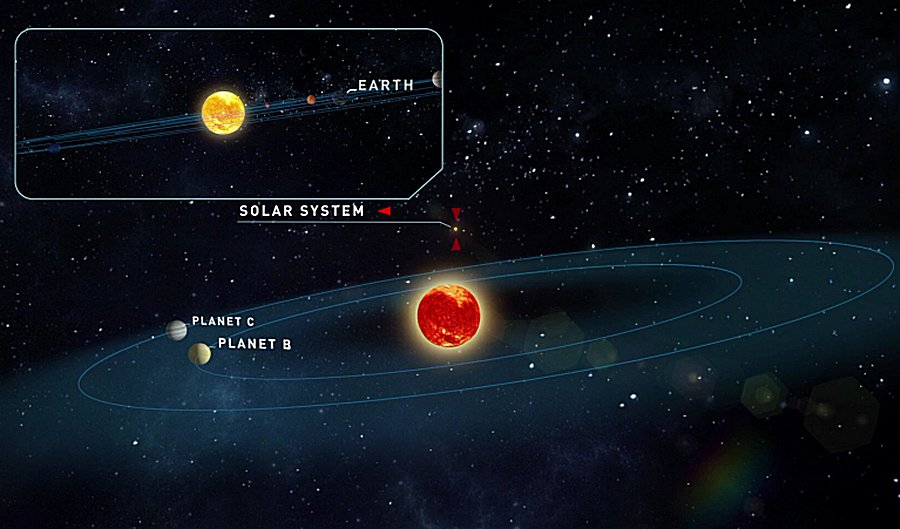Eddie Gonzales Jr. – MessageToEagle.com – Two new planets like the Earth around one of the closest stars within our Galactic neighborhood have been discovered by an international team of researchers led by the University of Göttingen (Germany) with participation by researchers from the Instituto de Astrofísica de Canarias (IAC).

The “Teegarden” star is only 12.5 light years away from us. This is one of the smallest stars, a red dwarf, in the direction of the constellation of Aries. Its surface temperature is 2,700O C and its mass is only one tenth that of the Sun. Even though it is so near, its faintness impeded its discovery until 2003.
“We have been observing this star for three years to look for periodic variations in its velocity,” Mathias Zechmeister, a researcher at the University of Göttingen, the first author of the paper, said in a press release.
The observations showed that there are two planets orbiting it, both of them similar to the planets in the inner part of the Solar System. They are just a little bigger than the Earth, and are situated in the “inhabitable zone” where water can exist as a liquid.
“… The studies have allowed us to show that the signals of the two planets cannot be due to the activity of the star, even though we could not detect the transits of the two new planets” comments Victor Sánchez Béjar, an IAC researcher and another author of the paper.

In order to use the transit method the planets must pass across the face of the stellar disc and block some of the light from the star during a short time, which means that it must lie on a line joining the sun an ourselves, the observers. This lucky alignment occurs for only a small fraction of planetary systems.
The system of the Teegarden star is situated in a special direction on the sky, from this star it will be possible to see the planets of our Solar System pass directly in front of the sun and for a few years the Earth will be observable as a transiting planet for anyone on one of the Teegarden planets who cares to observe. The type of stars to which the Teegarden star belongs are the smallest for which we can measure the masses of their planets with current technology.
Since 2016 German and Spanish scientists have been searching for planets around nearby stars using CARMENES, which i son the 3.5m telescope of the Calar Alto observatory (Almería) These new planets are the tenth and eleventh discovered by the project.
Written by Eddie Gonzales Jr. – MessageToEagle.com Staff






